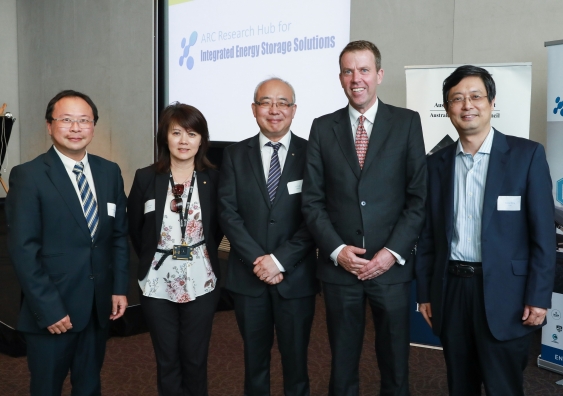As an extra accelerant onto the hydrogen flame started at the University of New South Wales (UNSW), the Australian Research Council (ARC) has announced $4.9 million funding for the development of the ARC Training Centre for the Global Hydrogen Economy over the next five years.
Late last month, UNSW and Providence Asset Group teamed up to form the Hydrogen Energy Research Centre, a university-to-industry institute toward the translation of hydrogen research into commercial production as Australia looks to become a world leader in hydrogen exports.
The partnership takes the form of the Hydrogen Energy Research Centre (HERC), no doubt to become a key player in Australia’s ambition to become a world leader in hydrogen with annual exports reaching $10 billion by 2040, as expressed in the National Hydrogen Strategy.

Image: UNSW
While the National Hydrogen Strategy and the Morrison Government’s Technology Roadmap are both emission neutral ventures, HERC is not so masochistic. HERC, which is to be led by UNSW Engineering Professor Kondo-Francois Aguey-Zinsou, seeks to implement electrolysis, green storage and fuel cells to translate hydrogen domestically and for export.”
For the ARC Training Centre, Aguey-Zinsou will be teaming up with Scientia Professor Rose Amal, 2019 NSW Scientist of the Year, to scale up hydrogen generation and its export. At the ARC Training Centre Amal and fellow researchers will bring together global research institutions, industry partners, government, and hydrogen start-ups to form an international consortium for the production, storage, utilisation, commercialisation, workforce development, and public acceptance of hydrogen.
“Australia is well-positioned to capitalise on the emerging global growth of hydrogen,” said UNSW Deputy Vice-Chancellor, Research, Professor Nicholas Fisk. “However, to be competitive and produce at scale, we need cost-effective hydrogen technologies and capabilities for transitioning hydrogen into an array of industries.”
The funding comes as part of $24 million from the ARC across five new training centres. “We want universities to be even more entrepreneurial and engaged with industry,” said Minister for Education Dan Tehan. “These training centres will drive Australian growth, innovation and competitiveness, improving the lives of everyday Australians, through drug design, and developing new opportunities for business, through the scale-up of hydrogen generation and its export.”
In its Technology Investment Roadmap Discussion Paper, the Government set the stretch goal — dubbed ‘H2 under 2’ — of producing hydrogen for AU$2 a kilogram, by any means. Cost-competitive clean hydrogen generation for domestic use and for export is one of the few things across the political spectrum admitted to be a genuine game-changer.
This content is protected by copyright and may not be reused. If you want to cooperate with us and would like to reuse some of our content, please contact: editors@pv-magazine.com.









By submitting this form you agree to pv magazine using your data for the purposes of publishing your comment.
Your personal data will only be disclosed or otherwise transmitted to third parties for the purposes of spam filtering or if this is necessary for technical maintenance of the website. Any other transfer to third parties will not take place unless this is justified on the basis of applicable data protection regulations or if pv magazine is legally obliged to do so.
You may revoke this consent at any time with effect for the future, in which case your personal data will be deleted immediately. Otherwise, your data will be deleted if pv magazine has processed your request or the purpose of data storage is fulfilled.
Further information on data privacy can be found in our Data Protection Policy.